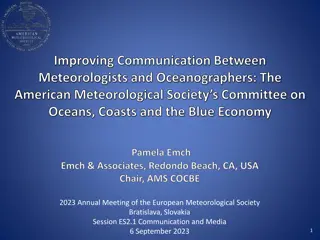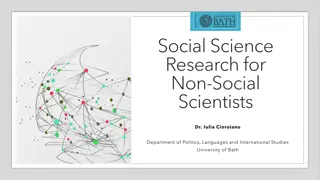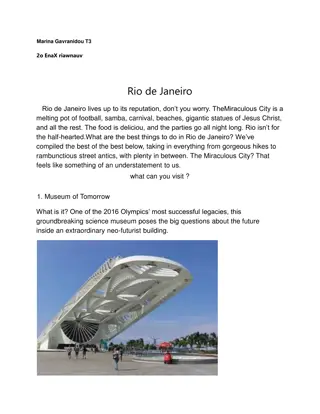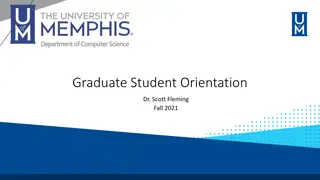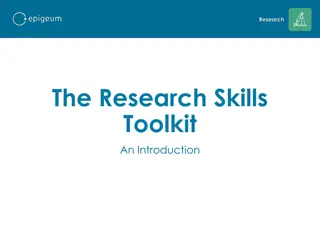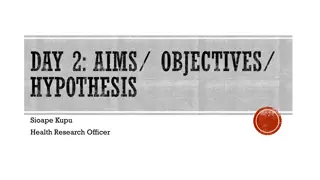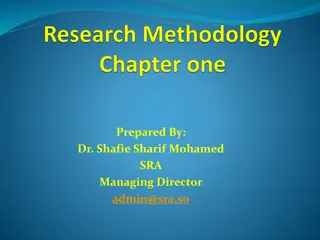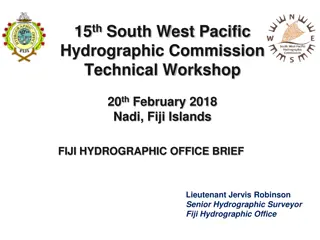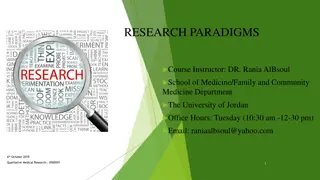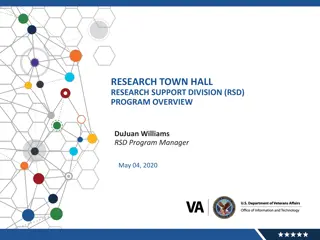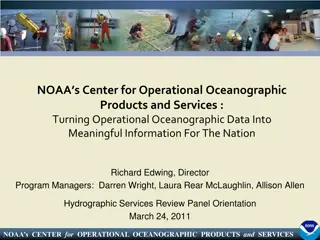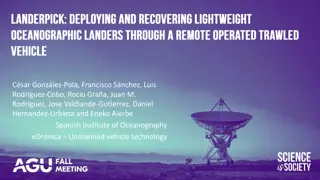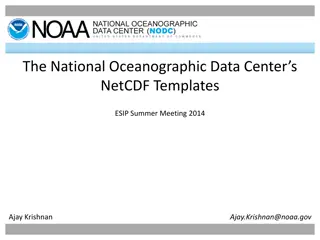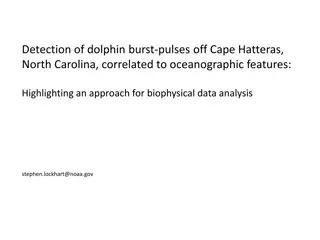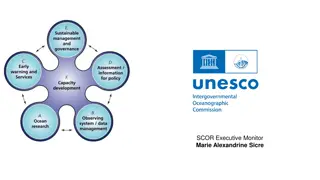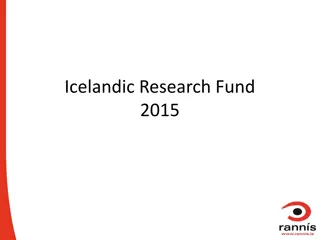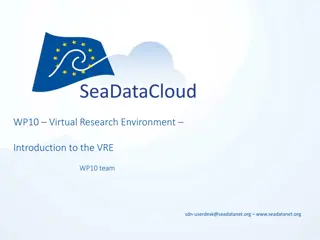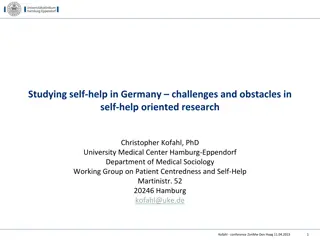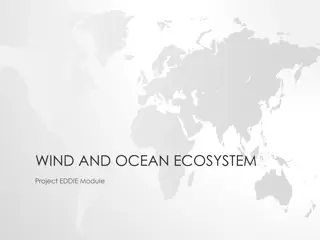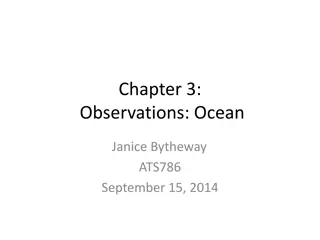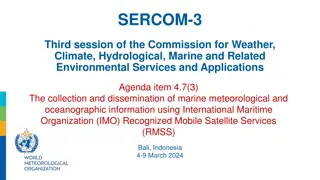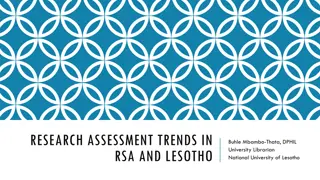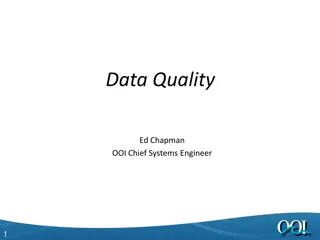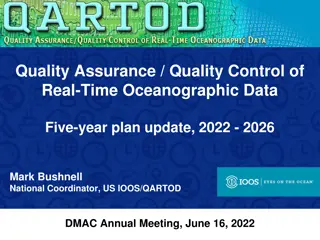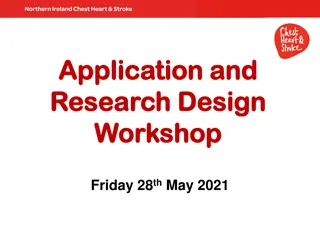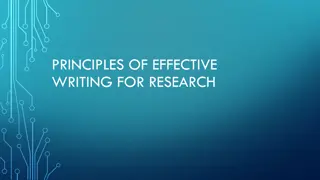Addressing Contemporary Challenges in Research Security Program Development
The Workshop to Inform Development of the Research on Research Security Program (RRSP) focuses on safeguarding the research enterprise amidst evolving global threats. Led by Dr. Rebecca Keiser and Dr. Shawna Cox, the program aims to balance security measures while maintaining an open and collaborati
3 views • 16 slides
Safeguarding Canada's Research: Policy on Sensitive Technology Research and Affiliations of Concern (STRAC)
Canada's new Policy on Sensitive Technology Research and Affiliations of Concern (STRAC) aims to protect the country's research ecosystem from foreign entities posing security risks. The policy restricts funding for projects involving sensitive technology research if affiliated with military or stat
1 views • 10 slides
Understanding the Process and Types of Research Design
The process of research design involves interactive stages that occur simultaneously, leading to the designing of a research study. This includes steps in research design, classification of research design types, such as exploratory, descriptive, and experimental/causal research design. Each type se
12 views • 8 slides
Importance of Formulating Clear Research Problems
Addressing a research problem is crucial in research endeavors as it guides the process, helps in setting objectives, and determines the direction of the study. Formulating a well-defined research problem aids in understanding the research procedure, clarifying objectives, designing the research pro
14 views • 7 slides
The Large Lakes Observatory and The Science of Freshwater Inland Seas
The Large Lakes Observatory (LLO) at the University of Minnesota Duluth is a leading academic program focused on limnology, oceanography, and research dedicated to inland seas. LLO's unique focus on oceanographic research methods applied to large lakes worldwide is supported by the Blue Heron resear
9 views • 28 slides
Action Research Cycle Step 1: Plan and Implementing Research Questions
Action research involves identifying a problem, forming research questions, and creating a research plan. It aims to understand situations, evaluate, problem-solve, and generate new ideas. Defining a research topic is crucial, focusing on the rationale and relevance. Selecting manageable topics dire
8 views • 17 slides
UCC Research Support and Strategies Overview
UCC's Research Support, Policy & Strategy function, led by David O'Connell, PhD, provides comprehensive support for research activities at the university. The office manages research funding, monitors performance, and facilitates engagement with external stakeholders. UCC's involvement in Horizon Eu
3 views • 17 slides
Strengthening Communication Between Meteorologists and Oceanographers
American Meteorological Society (AMS) has taken steps to improve collaboration with oceanographers through the Committee on Oceans, Coasts, and the Blue Economy. Initiatives include increasing ties, organizing sessions, and addressing a wide range of topics to enhance interactions between the atmosp
0 views • 9 slides
Understanding Social Science Research for Non-Social Scientists at University of Bath
This resource delves into social science research fundamentals, encompassing types of inquiry, empirical research categories, primary and secondary research distinctions, and the importance of selecting a suitable research topic. It offers guidance on initiating research based on empirical observati
1 views • 10 slides
Discover the Best of Rio de Janeiro, Monaco, and Thailand
Explore the vibrant city of Rio de Janeiro with its iconic attractions like the Museum of Tomorrow and Christ the Redeemer, dive into the luxurious charm of Monaco at the Oceanographic Museum and Prince's Palace, and trek through the mountainous landscapes of Chiang Mai in Thailand to experience the
0 views • 19 slides
Graduate Student Orientation Fall 2021 - CS Department Overview
The Graduate Student Orientation for Fall 2021 at the CS Department led by Dr. Scott Fleming covers essential topics such as department mission, degree programs, faculty research areas, research impact indicators, and research opportunities within the department. Learn about the CS Department's high
0 views • 41 slides
Enhancing Research Skills with Epigeum's Research Skills Toolkit
Epigeum, a leading provider of online courseware, offers the Research Skills Toolkit, comprising five core programs designed to equip postgraduate researchers with key skills and knowledge. Developed from the Research Skills Master Programme, the Toolkit integrates interactive learning design, user-
1 views • 9 slides
Effective Proposal Writing for Health Research
Learn about the fundamentals of research proposals for health-related studies, including defining research, understanding the purposes of health research, and exploring motivation for undertaking research. Discover the difference between basic and applied research, examine types of research, and del
1 views • 70 slides
Overview of Research Problem Identification and Formulation
Understanding the importance of defining a research problem, this content delves into the selection and formulation of research problems, the definition of a research problem, reasons for defining it, methods for identifying research problems, sources of research problems, and considerations in sele
1 views • 11 slides
Understanding the Process and Types of Research Design
The process of research design involves interactive stages occurring simultaneously, leading to the creation of a structured study. There are three main types of research design: exploratory, descriptive, and experimental (or causal). Each type has its own objectives and methods. Exploratory researc
0 views • 7 slides
Understanding Research Aims, Objectives, and Hypothesis in Health Research
This content delves into the importance of defining research aims, objectives, and hypotheses in health research. It explains how research aims clarify the study's goals, objectives outline specific tasks to achieve those goals, and hypotheses help in making predictions. It also discusses the proces
1 views • 17 slides
Understanding the Essence of Research: A Comprehensive Overview
Research is a systematic pursuit of new knowledge, aiming to unveil hidden truths through data collection and analysis. This course outline delves into the fundamentals of research, covering topics such as types of research studies, importance of research, and distinctions between pure and applied r
3 views • 32 slides
Epic Tools for Clinical Research by Shara Power, RN, BSN, OCN
Explore Epic tools for clinical research developed by Shara Power, a skilled application developer specializing in EPIC Beacon Oncology at UIHC Healthcare Information Systems. Learn about managing research study records, investigational study medication orders, and the process for creating and using
0 views • 26 slides
Fiji Hydrographic Office Overview
Lieutenant Jervis Robinson, a Senior Hydrographic Surveyor at the Fiji Hydrographic Office, provided insights into the roles and responsibilities of the office in collecting, processing, and disseminating georeferenced data related to maritime navigation, marine resources, and environmental preserva
1 views • 23 slides
Understanding Research Paradigms in Qualitative Medical Research
Delve into the world of research paradigms in qualitative medical research with a focus on the key differences between objective and subjective research, the meaning of research paradigms, components of research paradigms, types of research paradigms, and how paradigms guide the selection of researc
0 views • 42 slides
Overview of VA Research Support Division Program
The Research Support Division (RSD) program at the VA focuses on providing guidance and implementing enterprise information security standards for stakeholders involved in research programs. Their mission includes ensuring data security, risk management, and transparency while advancing VA Research.
2 views • 16 slides
Guidelines for Selecting Research Project Topics in Environmental Health
Research is crucial for addressing environmental health issues. Choosing a good research topic is the first step towards effective research. This paper discusses the meaning, characteristics, types of research, and the research process to help in selecting appropriate research topics. Understanding
0 views • 15 slides
Comprehensive Research Training Programme in Social Sciences
Delve into the Research Training Programme offered by the Graduate School of Social Sciences, led by Professor Mark Tranmer. Explore the importance of research methods training, course offerings under the Research Training Programme (RTP), the Certificate in Social Science Research Methods (CSSRM),
6 views • 11 slides
NOAA's Center for Operational Oceanographic Products and Services Overview
The NOAA's Center for Operational Oceanographic Products and Services (CO-OPS) provides accurate, reliable, and timely oceanographic data to support safe navigation, ecosystem stewardship, coastal hazards preparedness, and climate change understanding. With a mission to ensure access to essential co
0 views • 37 slides
Innovative Oceanographic Technology: LanderPick System
Spanish Institute of Oceanography introduces the LanderPick system for deploying and recovering lightweight oceanographic landers efficiently. Overcoming the drawbacks of traditional landers, this system offers cost-effectiveness and precision in locating deep-sea habitats like coral reefs. Operable
0 views • 6 slides
NODC NetCDF Templates for Oceanographic Data Management
Explore the integration of CF and ACDD conventions into the NODC NetCDF templates for organizing oceanographic data. Learn about the benefits, attribute conventions, CF feature types, and how to apply the conventions to your datasets effectively. Use the provided decision tree and examples to stream
0 views • 19 slides
Dolphin Burst-Pulses Detection off Cape Hatteras, NC: Biophysical Data Analysis
Detection of dolphin burst-pulses off Cape Hatteras, North Carolina, correlated with oceanographic features using biophysical data analysis. The study highlights the correlation of these bursts with the Gulf Stream position, emphasizing the importance of data management strategies in integrating phy
0 views • 11 slides
Collaborative Research Programmes in Ocean Science
Collaboration between the International Oceanographic Commission (IOC) and the Scientific Committee on Oceanic Research (SCOR) has led to successful research initiatives focusing on topics like Harmful Algal Blooms, Global Trends of Phytoplankton, Multiple Ocean Stressors, Microplastics, and more. O
0 views • 7 slides
Icelandic Research Fund 2015: Enhancing Scientific Research and Education
The Icelandic Research Fund (IRF) aims to enhance scientific research and education in Iceland by awarding funding to research projects led by individuals, teams, universities, research institutes, and companies. Principal investigators must have completed graduate studies and experience in running
0 views • 22 slides
Introduction to SeaDataClouds Virtual Research Environment
SeaDataClouds Virtual Research Environment (VRE) aims to support versatile use cases in oceanographic research by providing collaborative tools, high-performance data processing, and privacy-respecting configurations. The VRE is designed to facilitate individual and group research projects, combinin
0 views • 22 slides
Challenges in Self-Help Research in Germany
Exploring the landscape of self-help research in Germany reveals various challenges and obstacles faced by researchers in studying self-help initiatives. The research delves into different aspects such as research scope, involvement of various groups, and the entities conducting research in this dom
0 views • 14 slides
Memorial University Research Strategies Overview
Memorial University's research strategies focus on attracting, retaining, and supporting researchers, fostering an environment of research excellence, engaging with community partners, and supporting fundamental and applied research. The university's strategic priorities include synergy in applicati
0 views • 11 slides
Understanding Geographic Coordinates: Importance and Significance
Explore the significance of geographic coordinates in oceanography and ecosystems. Learn why wind plays a crucial role in various oceanographic disciplines. Discover how latitude and longitude are utilized to pinpoint locations on Earth's surface, whether using degrees, minutes, seconds or decimal d
0 views • 31 slides
Insights on Ocean Climate Change: Observations and Implications
Observations in this chapter highlight significant changes in ocean properties related to climate over the past 40 years. These changes include shifts in temperature, salinity, sea level, carbon levels, pH, and oxygen content. The patterns of change observed suggest a link between surface and subsur
0 views • 35 slides
Modernization of Maritime Services for Enhanced Safety and Data Collection
The collection and dissemination of marine meteorological and oceanographic information using multiple Recognized Mobile Satellite Services (RMSS) is essential for improving global coverage and data sharing. The modernization of services, including Iridium SafetyCast and INMARSAT, enhances the Globa
0 views • 6 slides
Research Assessment Trends in RSA and Lesotho: Issues, Challenges, and Forward Strategies
Research assessment in RSA and Lesotho involves evaluating research quality, measuring inputs, outputs, and impacts using both qualitative and quantitative methodologies. The prevailing practices include assessing research productivity for progression and utilizing various assessment mechanisms to e
0 views • 7 slides
Data Quality Protocols and Procedures for Instrument Calibration and Sampling Rate Management
This document outlines the data quality protocols and procedures recommended for instrument calibration, automated quality control thresholds, and flagging, as well as sampling rate strategy development and management for oceanographic instruments both shoreside and at-sea. It covers pre-deployment
0 views • 23 slides
Quality Assurance/Quality Control of Real-Time Oceanographic Data: Five-Year Plan Update 2022-2026
Update on the Quality Assurance/Quality Control plan for real-time oceanographic data, presented by Mark Bushnell at the US IOOS/QARTOD DMAC Annual Meeting in June 2022. The presentation covers the focus on real-time quality control manuals, the Seven Laws of QARTOD established in 2003, and the invo
0 views • 15 slides
Exploring Research Design and Funding Priorities in Northern Ireland
Dive into the world of research at the upcoming Application and Research Design Workshop scheduled for Friday, 28th May 2021. Discover the strategic priorities driving impactful research initiatives, learn about current research projects, funding processes, and collaborations. Explore the rich histo
0 views • 37 slides
Writing Research Papers Effectively: Guidelines and Steps
Effective writing for research involves developing a good research idea, writing a literature review, and understanding the key elements of writing research articles. This process includes coming up with a strong research question, gathering relevant information, creating an outline, writing the dra
0 views • 26 slides







